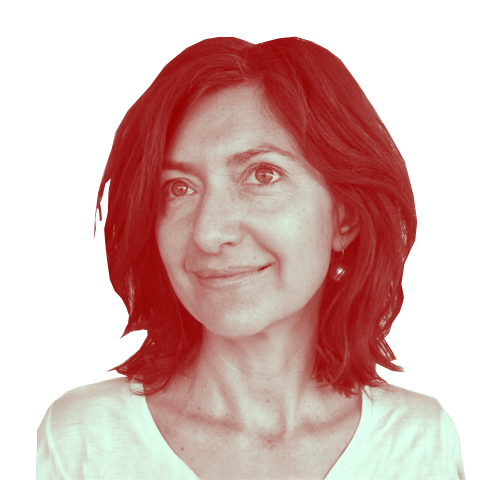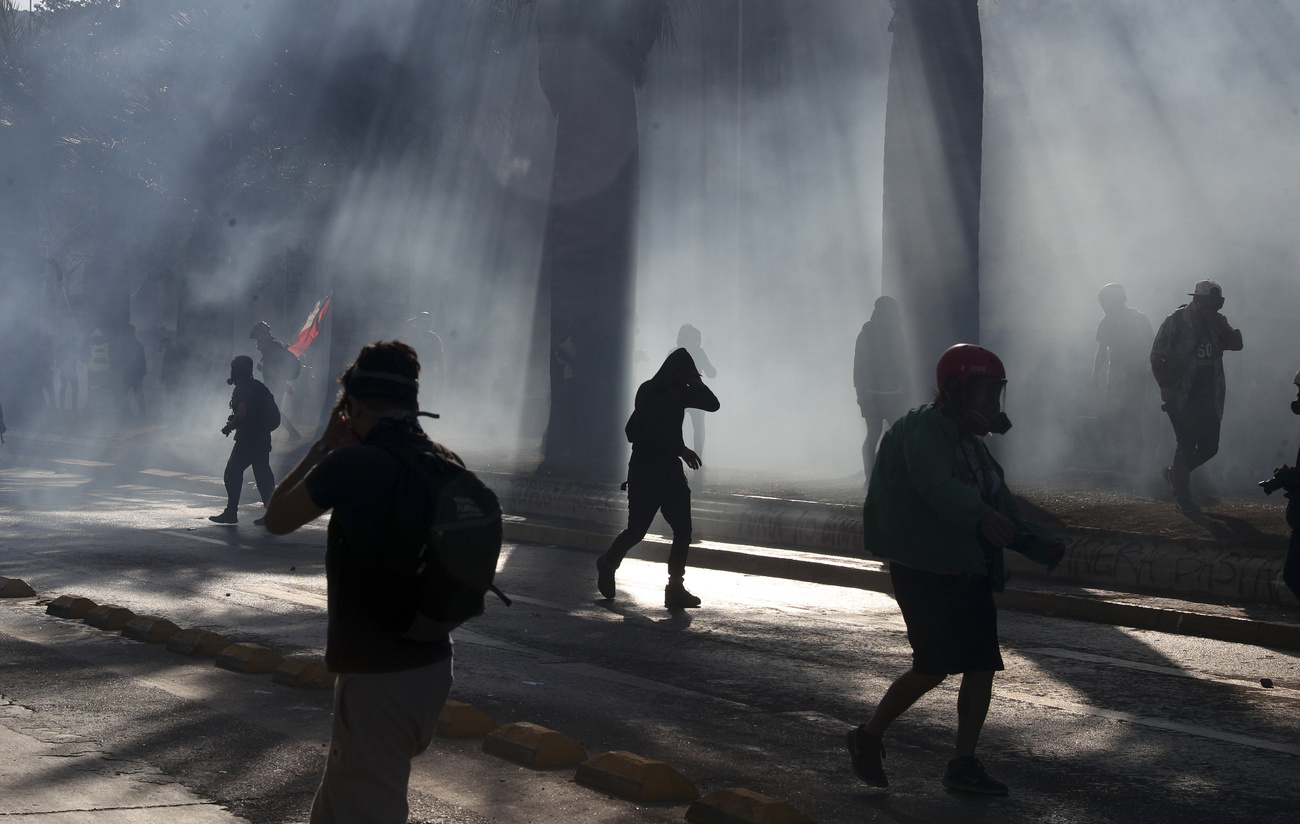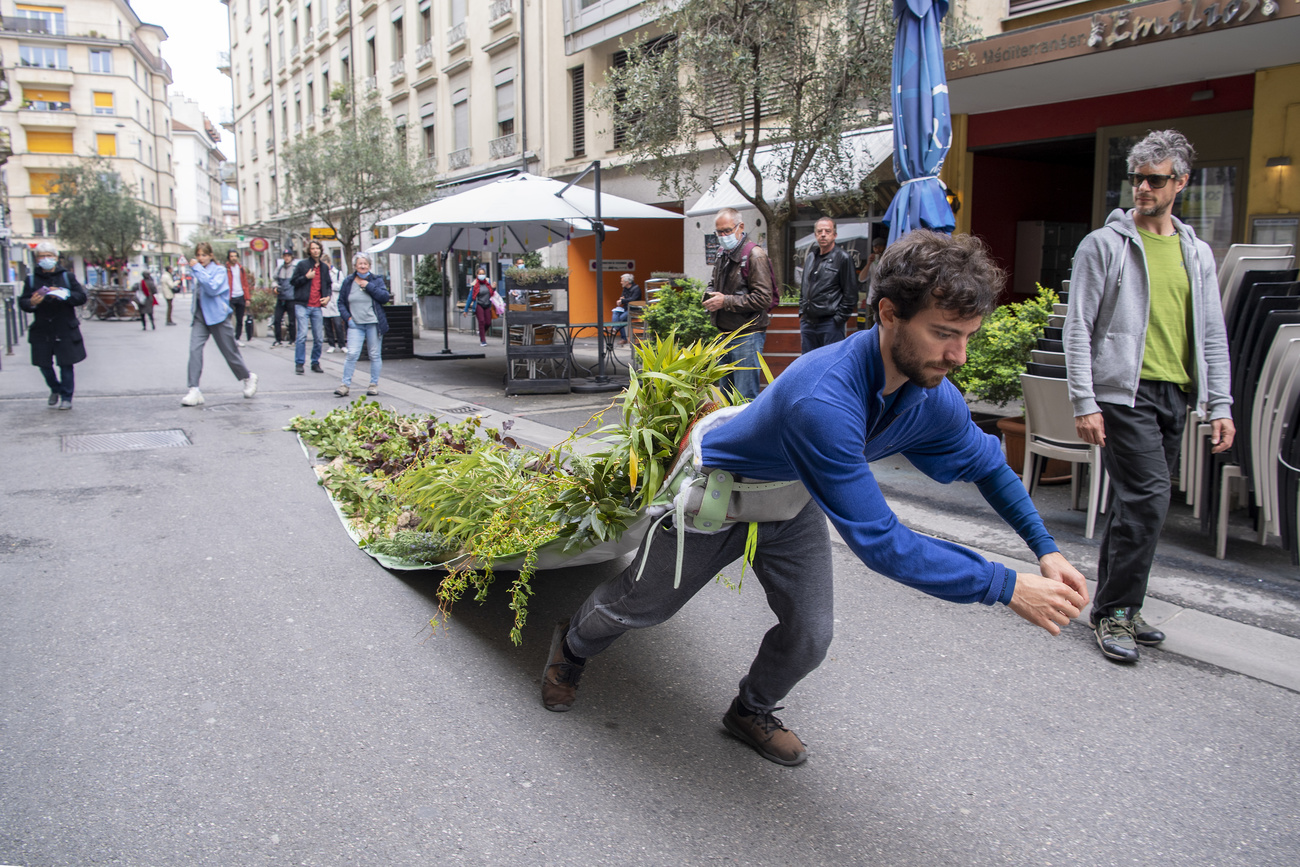Fourth of July and the reinvention of modern democracy
Constitutions set the ultimate rules of a democratic society. That's why it is so important how and by whom they are written. After decades of conflict, Chile is now on a new path, inspiring the whole world – and learning lessons from countries like Switzerland, Iceland and Venezuela.
July 4 is already a big day, it marks Independence Day in the United States. This year another milestone in the history of democracy is added to the calendar: in Santiago, Chile, a Constitutional Convention will convene from 10 am. The role of the convention, an assembly elected by the citizens, will be to revise the country’s constitution 30 years after the previous one was approved by former dictator Augusto Pinochet in 1980. The citizens will have the final say in a binding popular vote.
How a country is governed is defined by its constitution. Historically most constitutions have evolved out of exceptional, disruptive contexts such as decolonisation processes, military coups or transitions to democracy. The elaboration of new or totally revised constitutions in democratic contexts is not common. A re-cent study by Santiago-based political scientist Gabriel Negretto has just found around two dozens such cases in the period running from 1900 to 2015 – with Switzerland in the 1990s as an exceptionally peaceful and inclusive one. Some-thing Chile is attempting to achieve as well.
As constitutions are so important, it is surprising that so few cases have led to total revisions of national constitutions. This is even more surprising given that people around the world are increasingly unsatisfied with the way their democracies work. Many want changes, including constitutional changes. However, in most national constitutions there are a set of rigid rules preventing change. While popular votes on constitutional changes are both frequent and wide-spread, just a few allow citizens themselves to initiate amendments. An exception to the rule is Switzerland, where citizens are directly empowered to initiate a full overhaul or partial revision of their basic laws.
The participatory Swiss process
Switzerland offers a unique setting, and to analyse the way it revises its constitution could inspire new options in other parts of the world. In Switzerland, 2% of eligible citizens have (under art. 138 of the federal constitution) the right to initiate a full constitution overhaul. If such an initiative is approved in a popular vote, new elections for parliament (direct) and the government (indirect) need to be held. In the end, the proposal of the totally renovated constitution needs to be approved by the citizens one more time. Similarly many US states allow citizens to take the lead to change individual states’ constitution.
Chile’s very own democratic path
In Chile, a political agreement launched the revision process. The leading political forces agreed to the new path in order to respond to a social explosion of discontent, going back to late 2019 when the operator of the Santiago public transport suddenly announced a raise of the price of single-trip tickets.
On October 25, 2020 more than 78% of Chilean electors approved, through a referendum, the proposal by the constitutional committee of the Chilean parliament to rewrite the national constitution. They also answered yes to a second referendum question which proposed a directly elected Constitutional Convention composed of an equal number of men and women and guaranteeing an appropriate representation of indigenous councilors in the convention. Mid-may, Chileans selected 155 representatives out of more than 1,300 candidates, reaffirming their commitment to overcome the status quo. Political party candidates both on the right and left got so few votes that neither traditional right, nor left-wing forces, will be able to veto forthcoming proposals of a convention dominated by independent citizens candidates on their own.
The citizens of Chile gave a clear assignment to the new Constitutional Councilors: ‘renovate our broken politics by making our democracy democratic again’. World history has seen such ruptures many times before, but only seldom a truly successful new beginning has had lasting consequences. Iceland is a recent example for this.
Learning from failures in Iceland and Venezuela
On the arctic island a government-sponsored process to revise the constitution started in the aftermath of the financial crisis a decade ago. While many participated in the revision process which led to a concluding popular vote, shifting majorities in parliament simply ignored the outcome. A recent attempt to initiate change failed this summer. Such “delivery” problems emerge from the lack of connection between the grassroots movements pushing for a change and the traditional political parties losing and then reestablishing control. Once the political crisis is over, normal politics return and people lose their capacity to intervene in the law-making process.
There are even more risks in presidential systems like in Venezuela. In such cases often a major conflict arises between the rule of law and the will of the people.
In Venezuela, Hugo Chávez campaigned for the presidency in 1989 promising a constitutional change which had been a citizen demand for a long-time. He did not have a majority in Congress and the constitution in force, dating back to 1961, did not allow the convening of a constituent assembly. The same day he took office, the new President signed a decree calling for a referendum with which he aspired to unblock the “legal obstacle” to the new constitution. In other words: the military general turned head of state, ordered a new basic law from above.
Reinventing “Fourth of July” and democracy
Actors in Chile opposing constitutional change – traditional media and political right-wingers – have claimed that Chile will follow Venezuela’s disastrous path of constitutional reform, talking about ‘Chilezuela’. But they are wrong.
While in Venezuela the government party took control over the constitutional process for decades occupying more than 90% of the seats in the constitutional assembly, in Chile, the election resulted in a highly pluralistic convention with no singular veto powers. Furthermore in Chile the constitutional renewal was a grassroots claim, not a governmental proposal, while the political elite remained reluctant.
With the inauguration of the Constitutional Convention this coming Sunday, July 4, not only the “Fourth of July” will be reinvented in the Global South, and so will modern democracy.
Bruno Kaufmann

In compliance with the JTI standards
More: SWI swissinfo.ch certified by the Journalism Trust Initiative




You can find an overview of ongoing debates with our journalists here. Please join us!
If you want to start a conversation about a topic raised in this article or want to report factual errors, email us at english@swissinfo.ch.